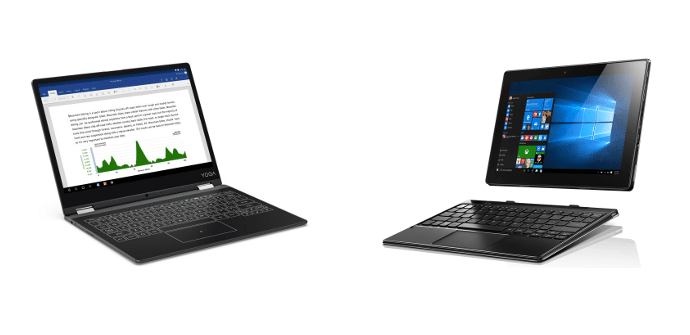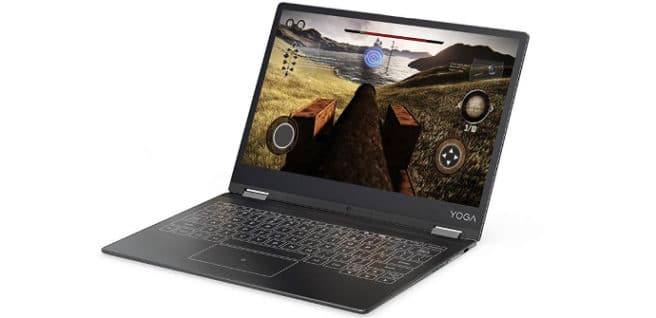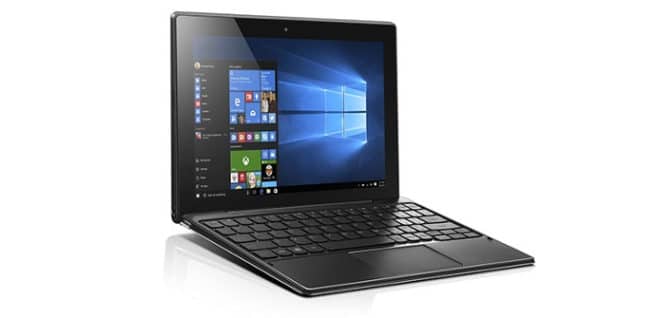
Let's end the week with one last comparative dedicated to mid-range professional tablets, although in this case we are going to close the circle a bit by facing the Technical specifications of an Android tablet, the Yoga A12, who Lenovo presented earlier in the week, with the Miix 310, one of the most affordable models of this type that the same manufacturer has in its catalog and that yesterday we faced with the Asus Transformer Mini for this very reason. What does each of them offer us and what can be more worthwhile for us? Is it worth looking for a tablet Windows cheap or maybe a tablet Android with an appropriate design is a better alternative? What do you think?
Integrated
Although doubts regarding the potential of Android as an operating system in a device that we plan to dedicate mainly to work are quite frequent, at least it must be recognized that, as we said before, from the point of view of design, the Yoga A12 It meets all the requirements that we could wish for, with a 2-in-1 format that allows us to use it in very different positions and with an attached touch panel that not only serves as a keyboard but also to draw or write on it with a stylus. The Miix 310, on the other hand, it is somewhat more limited in this sense, especially due to the lack of a rear support that allows us to hold it without having the keyboard attached.
Dimensions
We still do not have the dimensions of the Yoga A12, a detail that, unfortunately, Lenovo has not revealed yet, but we have no doubt that its size will be larger than that of the Miix 310 (24,6x17,3 inch), and that it will also be heavier (580 grams) simply because its screen is bigger, something that, in fact, makes not having this data so unfortunate.
Screen
As we have just said, one of the advantages that the Yoga A12 on Miix 310 is having a bigger screen (12.2 inches against 10.1 inches), the standard size of professional Windows tablets, something that is always appreciated if we want to work with it. Regarding the resolution, on the other hand, they are tied (1280 x 800).
Performance
Good news with the Yoga A12 is that despite running Android Lenovo has not skimped when it comes to processor and has also mounted a processor Intel Atom (x-5 Z8550 against x5-Z8350), although it has cut a bit in RAM memory (2 GB against 4 GB), and this is something that we can notice more in the multitasking section.
Storage capacity
It also comes out winning the Miix 310 in the storage capacity section (32 GB against 64 GB), at least as far as the internal memory is concerned, because both have a card slot micro-SD. We must also bear in mind that Android is going to take up much less space than Windows.
Cameras
We also do not yet know how much the cameras of the Yoga A12, but we certainly do not expect them to surpass those of the Miix 310, which arrives with a main camera of 5 MP and another front of 2 MP. Of course, we cannot stop insisting that for an average user this should not be a major problem either.
Autonomy
Regarding autonomy, the comparison is certainly very complicated having not only devices with screens of very different sizes, but also running different operating systems. If it is an issue that particularly concerns you, we can only recommend that you wait for independent test data.
Price
Although surely the price of the Yoga A12 will go up a bit translated into euros, U.S. dollar 300 for which it has been announced at the moment in the United States place it very close to the slightly less than $300 for which you can now find the Miix 310, which gives special interest to this comparison. Which of the two do you think is a better investment?

